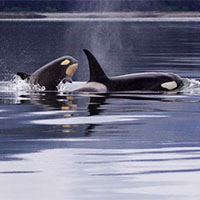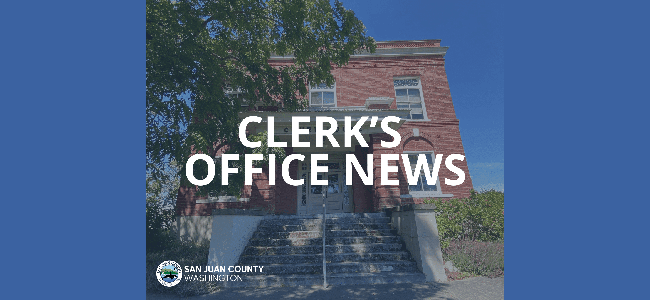— from Sarah DeWeerdt, Puget Sound Institute (Reprint from Kitsap Sun) —
A boy needs a mother: A universal proposition, but one that’s even truer for some creatures than others. Take the southern resident orcas of Puget Sound. Among these whales, both males and females stay with their mothers for their entire lives – an arrangement almost unheard of in the animal kingdom.
These tightly bonded families travel together, forage for salmon together, and are rarely out of contact for more than a couple of hours. And so, when a southern resident known as L32 died in the summer of 2005, her 13-year-old son L87 went looking to fill the mom-sized hole in his life.
Soon, L87 was consistently spotted with an older female known as K7. She was born around 1910, and had two sons of her own, scientists think. But they had died years before; perhaps L87 filled an empty space for K7, too.
It wasn’t to last. K7 died sometime in the spring of 2008 and the pattern continued. L87 stayed with K7’s larger social group, but in 2011 he seems to have gone looking for yet another mother figure, attaching himself to a nearly 80-year-old female known as J8.

In this Jan. 18, 2014, file photo, an endangered female orca leaps from the water while breaching in Puget Sound west of Seattle. (Photo: Elaine Thompson / Associated Press)
She too passed away two years later, and L87 began swimming with J2, also known as “Granny,” then the oldest of all the southern resident orcas. Since she disappeared in late 2016, L87 has been traveling with a forty-something whale known as J17 and her multigenerational family.
L87 is one of only 75 of Puget Sound’s endangered southern resident orcas. But as his story shows, that population’s survival isn’t just about numbers, it’s about relationships. Mounting evidence suggests that understanding the whales as individuals with valuable and specific roles in their social world will be key to saving the southern residents as a whole.
READ FULL ARTICLE: www.kitsapsun.com/story/news/local/2019/04/07/orcas-research-social-networks-key-helping-survival-rates/3379212002/
**If you are reading theOrcasonian for free, thank your fellow islanders. If you would like to support theOrcasonian CLICK HERE to set your modestly-priced, voluntary subscription. Otherwise, no worries; we’re happy to share with you.**







